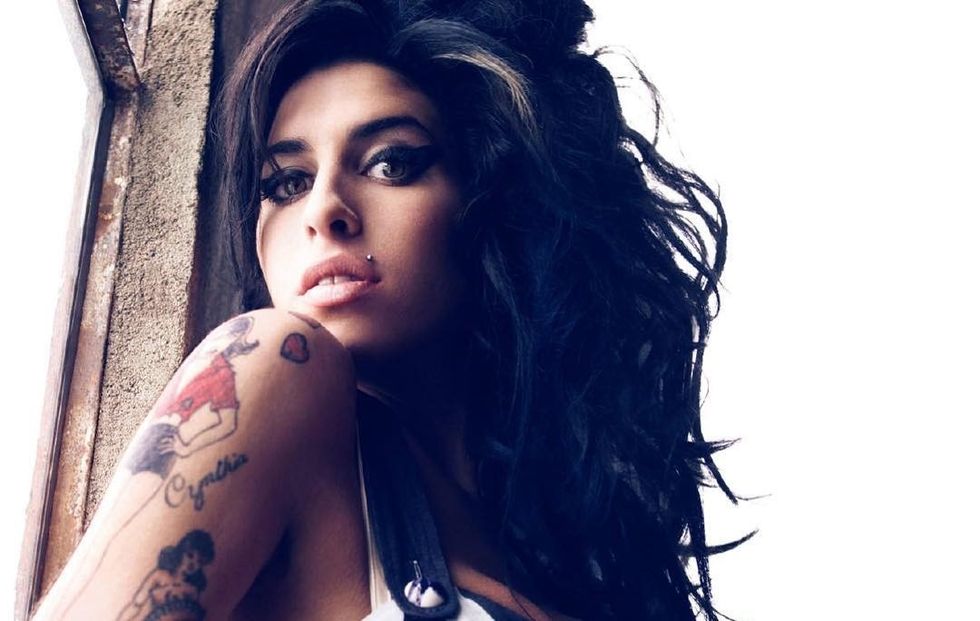Amy Winehouse was and always will be an icon. Best known for her hits "Rehab" and "Valerie," the second her powerful and soulful voice hits you, you know it's her. Unfortunately, she was taken from us too soon.
In July 2011, Amy was found dead at the age of 27. Her death was determined to be a result of alcohol intoxication.
Amy's battle with alcohol and drugs was not a secret to anyone, and unfortunately, many people in her life were almost expecting it to happen. Russell Brand, a close friend of Amy and an addict himself who got clean at the same age Amy was when she died, called her death "a paradoxical unsurprising shock." With the rate she was going, of course she died. But there's more to it than what the media sensationalized.
Yes, Amy's alcohol use was the ultimate nail in her coffin. But it may be a misrepresentation to say that she died due to alcohol intoxication. And the details matter.
Along with her battle with alcohol and drug addiction, Amy battled bulimia from a very young age. Two years after she died, her brother told Observer magazine, "What really killed her was the bulimia."
And it's not just her brother who believes this. Lorna Garner, Chief Operating Officer of eating disorder charity Beat, says that "It is possible that Amy Winehouse died because from the combination of her eating disorder and her issues with drink and drugs," adding, "The physical impact of an eating disorder over a sustained period of time includes organ damage ... This means that the body's organs are not able to deal with processing alcohol in the same way that healthy organs would, and therefore the likelihood of organ failure is greater."
The 2015 documentary chronicling Amy's life and death titled "Amy" was for many people the first time they heard any mention of her disorder. The documentary includes an interview with a doctor involved in Amy's treatment who calls her death a combination of alcohol poisoning and the weakened state of her body due to an eating disorder. However, this sentiment was not included in the official cause of death statement released to the public.
Why does this matter? Omitting such a detail from a cause of death statement perpetuates the idea that eating disorders, especially bulimia, are not deadly. A lot of us still think of eating disorders as phases or diets. When we do acknowledge the very real danger of these diseases—eating disorders have the highest mortality rate of any mental illness—we still limit it to the image of a frail and emaciated anorexia sufferer. We don't think that bulimia can kill. And leaving it out of the reports when it does is ensuring that it stays that way.
When people underestimate the dangers of a disease like bulimia, sufferers justify not reaching out for help. And when they are brave enough to, family, friends, society, and even doctors don't take it as seriously as it is. People learn to keep quiet. And they suffer. And they die.
There are countless instances in which people close to Amy recounted her eating large amounts of food and then disappearing for 45 minutes. There was even one person in her circle who recalled how she "redecorated the bathroom" during a recording session. People commented on her petite frame and her swollen face. People knew what was going on. But no one ever said anything until after the fact.
Amy wasn't alone in her struggles by any means. 37.5 percent of people with bulimia report excessive alcohol use and 26.8 percent report alcohol abuse or alcohol dependence. According to the National Eating Disorder Association, the number is even higher, reporting that nearly 50 percent of individuals with an eating disorder are also abusing drugs and/or alcohol, a rate 5 times greater than what is seen in the general population. And if there's anything we can learn from Amy's death, it's that bulimia and alcoholism is a truly deadly mix.
The way we report matters. The details we include and exclude matter. Yes, Amy Winehouse died from alcohol intoxication. But there's reason to believe the alcohol would never have killed her if she hadn't been in the midst of a very severe eating disorder. And maybe that detail is one worth reporting.
If you're interested in learning more about Amy's music, her life, and her death, check out "Amy" on Netflix. It's beautiful and heartbreaking and certainly worth a watch or two.








































